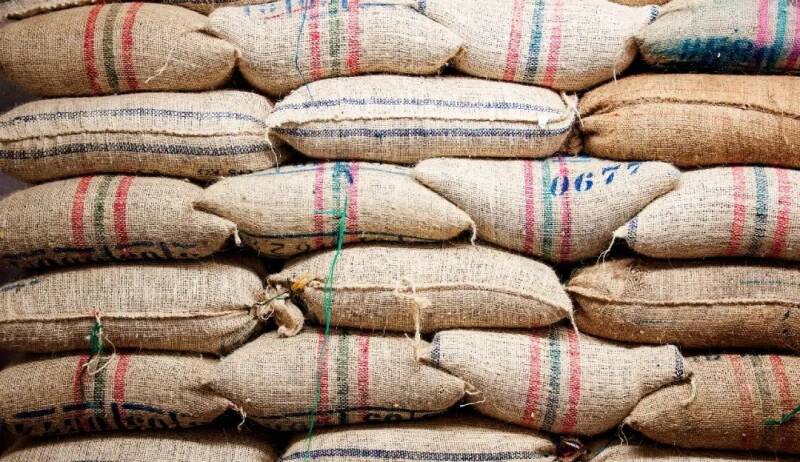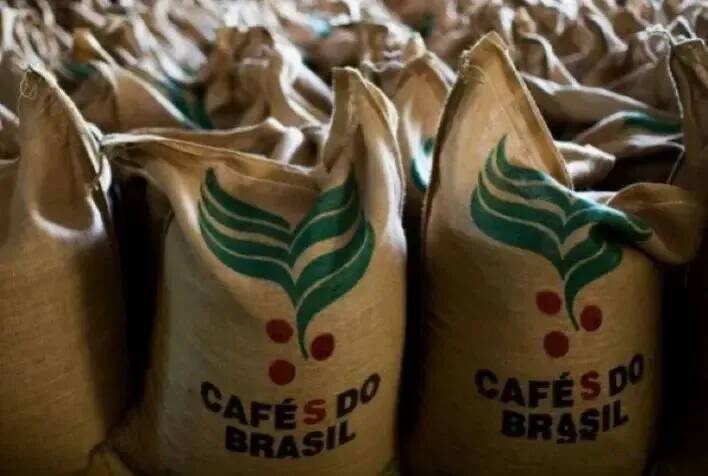Brazil's new tax policy! Exports of coffee and other agricultural products will slow down and prices will continue to rise
Earlier this week, the Brazilian government submitted a new executive order to Congress, including a day of new measures to tighten the use of tax credits, according to local media reports.
According to Brazil's finance ministry, it will tighten the use of federal PIS-Cofins tax credits, which it believes is a loophole and needs to be tightened to close tax loopholes in a number of industries and to support the Brazilian government's plan to close the deficit this year.

At the same time, however, the measure was strongly opposed by the agro-industrial sector, including pharmaceuticals, meat, fruit, coffee, cereals and biodiesel (vegetable or animal oil). And these exporters are expected to reduce revenue by 26.3 billion reais (US $4.91 billion).
In response, the executive secretary of the Ministry of Finance said at a press conference that the measure does not mean raising taxes and interest rates, but correcting "distortions that need to be resolved sooner or later". At the same time, it was pointed out that the move is expected to increase government revenue by up to 30 billion reais (US $5.66 billion) to eliminate the government budget deficit.
At present, the new tax rules will take effect immediately, but will need to be approved by Congress within four months to remain in effect. As a result, a number of Brazilian agricultural exporters have organized lobbying groups to attack the government for introducing new rules on tax credits. At present, exporters' associations such as soybeans, coffee and cotton have joined lobbying groups, increasing the likelihood that Congress will veto the government's proposal.

In addition, the Brazilian Council of Coffee exporters (PIS-Cofins) recently issued a statement saying that the purpose of the Cecafe tax credit rule is to provide promotion credit for coffee exports, which will affect the cash flow of coffee exporters and costs, and that the government's new tax measures will force companies to rely more on banks for credit, thereby increasing spending and increasing operating burden, a move that could lead to food inflation and unemployment in Brazil. It eventually reduces the international competitiveness of Brazil, the world's largest coffee exporter, which runs counter to the vision of bringing foreign exchange earnings, economic and social development to the Brazilian country.
In addition, some analysts said that because the measure has already taken effect and needs to wait for Congress to approve the new policy, some growers such as soybeans and coffee have stopped selling their agricultural products recently, and a long-term slowdown in export sales may prompt international buyers to seek alternative sources, which may lead to higher prices.
In addition, some people in the coffee industry believe that due to the recent drought and other bad weather in Vietnam, whether Robusta or Arabica coffee futures prices continue to rise, but at present, the Brazilian side may tighten coffee exports, which will undoubtedly increase the possibility of coffee futures prices rising.
However, there has also been some good news in recent days, when Brazilian Vice President and Minister of Development, Industry, Trade and Services Gerardo Geraldo Alckmin visited the SOHO store on Luckin Coffee's Guanghua Road in Beijing. In addition, Luckin Coffee signed a memorandum of cooperation with representatives of the Brazilian Export and Investment Promotion Agency and signed a cooperation intention with partners to purchase about 120000 tons of coffee beans from Brazil in the next two years. This cooperation is conducive to the development of Brazilian coffee exports.
Important Notice :
前街咖啡 FrontStreet Coffee has moved to new addredd:
FrontStreet Coffee Address: 315,Donghua East Road,GuangZhou
Tel:020 38364473
- Prev

How to use the coffee shower drip filter? Can strong water flow when making coffee by hand cause blockages? How to use the stirring method?
When many novice friends first started learning to make coffee, they always couldn't control the water flow well, causing the injected hot water to have too strong penetration! Excessive penetration will greatly improve the turbulence effect, which can easily cause the fine powder to be carried to the bottom by the water to block the filter paper, and eventually cause the coffee to pass due to too long extraction time.
- Next

How to make lemon slices? What does the Mafia have to do with coffee? Why is Sicily rich in lemons?
Italy is not only the birthplace of espresso, but also the birthplace of the mafia. And there is such a local coffee-related dessert that has been linked to the Mafia! Because it is easy to make, delicious and refreshing, it once became the most popular dessert among the mafia. It is-lemon slices! Lemon zila and the Mafia
Related
- What grade does Jamaica Blue Mountain No. 1 coffee belong to and how to drink it better? What is the highest grade of Blue Mountain coffee for coffee aristocrats?
- What are the flavor characteristics of the world-famous coffee Blue Mountain No. 1 Golden Mantelin? What are the characteristics of deep-roasted bitter coffee?
- Can I make coffee a second time in an Italian hand-brewed mocha pot? Why can't coffee be brewed several times like tea leaves?
- Hand-brewed coffee flows with a knife and a tornado. How to brew it? What is the proportion of grinding water and water temperature divided into?
- What is the difference between Indonesian Sumatra Mantinin coffee and gold Mantinin? How to distinguish between real and fake golden Mantelin coffee?
- What does bypass mean in coffee? Why can hand-brewed coffee and water make it better?
- Unexpected! Ruixing Telunsu lattes use a smoothie machine to foam milk?!
- % Arabia's first store in Henan opens into the village?! Netizen: Thought it was P's
- Does an authentic standard mocha coffee recipe use chocolate sauce or powder? Mocha Latte/Dirty Coffee/Salty Mocha Coffee Recipe Share!
- What is the difference between Vietnam egg coffee and Norway egg coffee? Hand-brewed single product coffee filter paper filter cloth filter flat solution!

